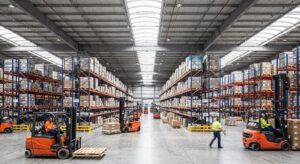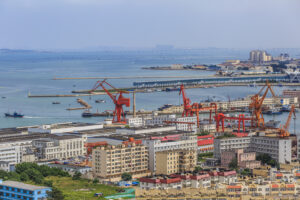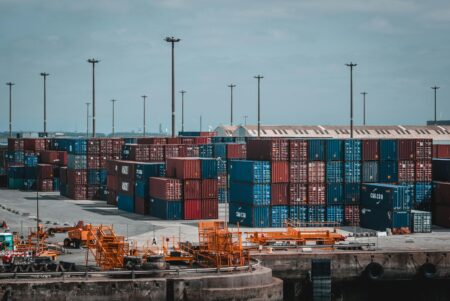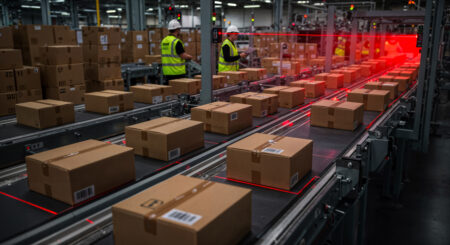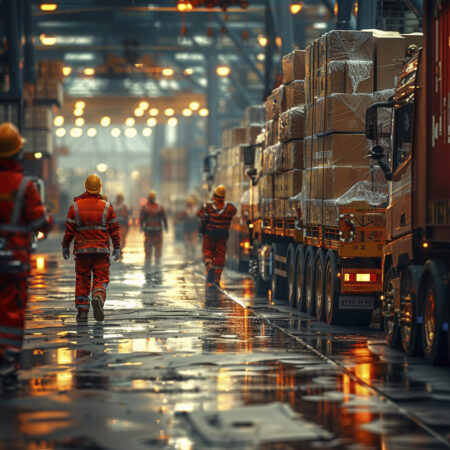India’s cold chain sector is evolving rapidly, with growing emphasis on tech-enabled infrastructure, regulatory alignment, and renewable energy. Anoop Chauhan, Vice President – Contract Logistics & Cold Chain, Subcontinent, DP World Subcontinent, outlines how resilient, sustainable, and globally compliant cold logistics are reshaping India’s temperature-sensitive industries.

Decentralised stores and centralised hubs enable agile, resilient, future-ready cold chains
India is making significant strides in strengthening cold chain infrastructure, particularly for industries like pharmaceuticals, FMCG, agriculture, and seafood. However, rising global temperatures and diverse geographical challenges continue to pose hurdles in maintaining temperature consistency. Current efforts are focused on enhancing in-transit stability, expanding Grade-A warehousing, and standardising regulations using advanced monitoring systems. Government initiatives also target reducing wastage of perishables, increasing processing levels, and promoting exports. Industry players are now deploying tech-enabled solutions such as IoT-led tracking, multimodal logistics, and modern fleets of reefer containers to ensure seamless control, compliance, and sustainability across the supply chain.
Resilient infrastructure
India’s cold chain sector is projected to reach USD 29 billion by 2038, creating about 1.7 million jobs. To meet this potential, a proactive, tech-driven, and multifaceted strategy is imperative. A balanced warehousing approach—integrating both centralised and decentralised models—offers resilience. While centralised hubs enable large-volume processing and national distribution, decentralised units near production or consumption points reduce spoilage and ensure swift delivery of perishables. Many logistics providers are now implementing centralised control towers that offer 24×7 visibility, enabling real-time tracking, temperature compliance, and fast decision-making under dynamic conditions.
Last-mile precision
Ensuring temperature integrity during last-mile delivery remains one of the cold chain’s toughest challenges, especially in remote or infrastructure-limited areas. Government schemes like the Pradhan Mantri Kisan SAMPADA Yojana and Integrated Cold Chain Infrastructure program have boosted private investment and facilitated the creation of modern cold storage facilities. Advanced cold chain logistics now incorporate IoT-based monitoring for critical parameters, smart shutter systems to prevent cold loss, and energy-efficient refrigeration to ensure the safe delivery of perishables. These innovations are reducing spoilage while preserving the efficacy and safety of pharmaceuticals and high-value perishables.
Sustainable transition
Sustainability is no longer optional—it is integral. With India’s dairy sector adopting solar-chilled storage and logistics companies realising up to 25 percent fuel savings through AI-driven routing, renewable-powered cold chains are both viable and scalable. Across the industry, operations are being realigned with these imperatives through the adoption of electric material-handling equipment, dock-charging reefer trucks, rooftop solar panels, and carbon emissions calculators. These sustainability-driven measures support both operational excellence and ESG compliance.
Global compliance
As global players enter India’s market, international certifications have become essential to maintain cold chain reliability. Many leading cold chain operators in India now hold globally recognised certifications such as FDA, GDP, TAPA, and BRC to ensure adherence to stringent quality and safety norms. Additionally, certifications like AEO-LO are enabling smoother and faster customs clearance. Modern cold chain facilities are now being designed with eco-friendly refrigeration systems and advanced multi-temperature controls to meet global standards, ensuring both safety and operational efficiency.


